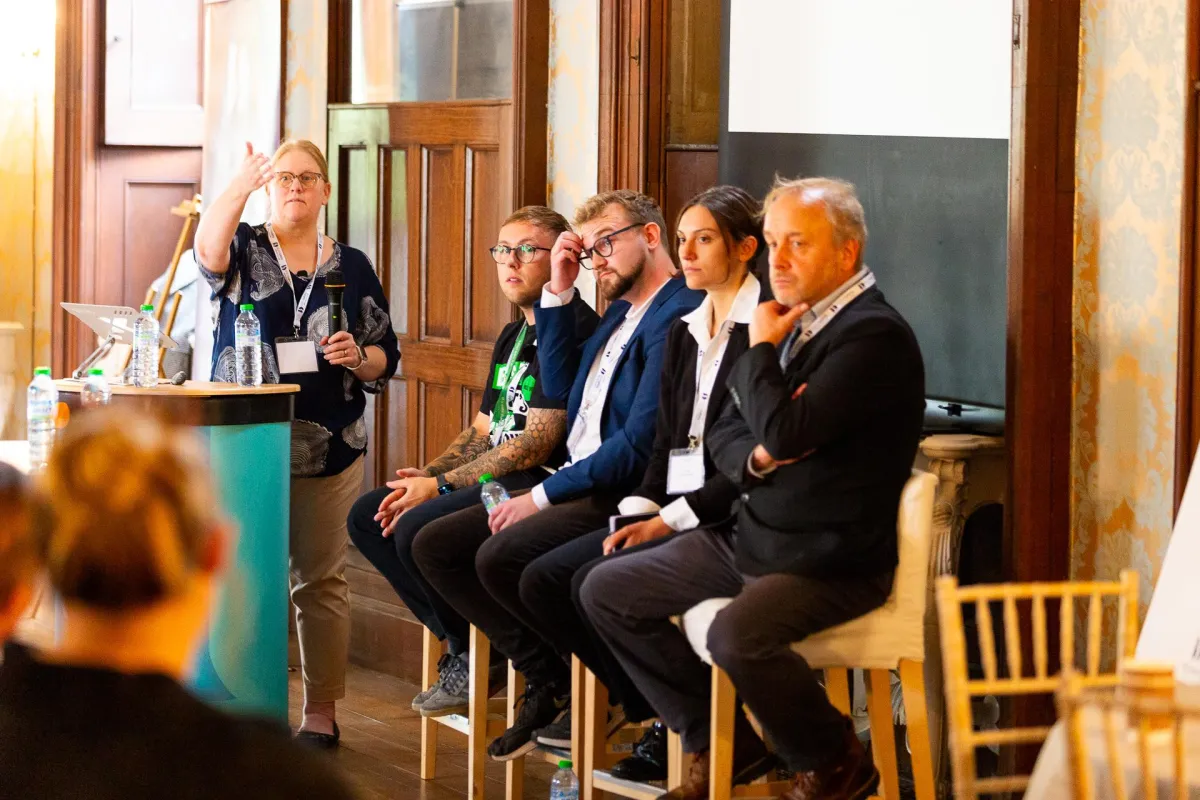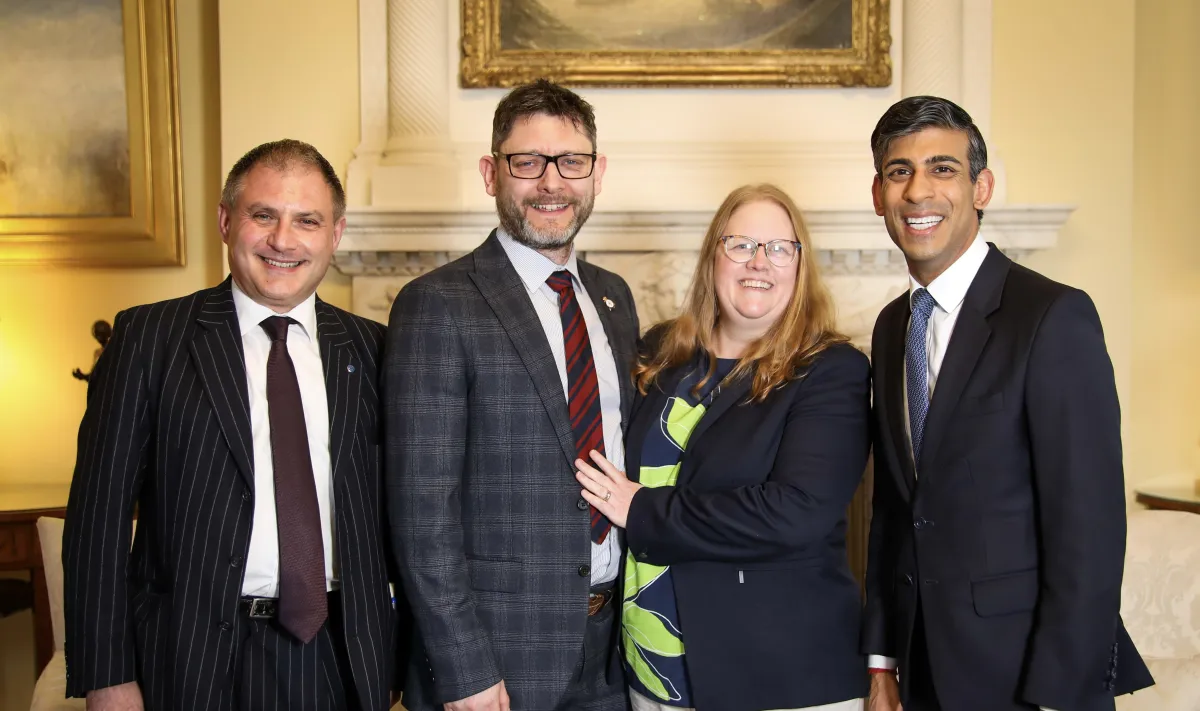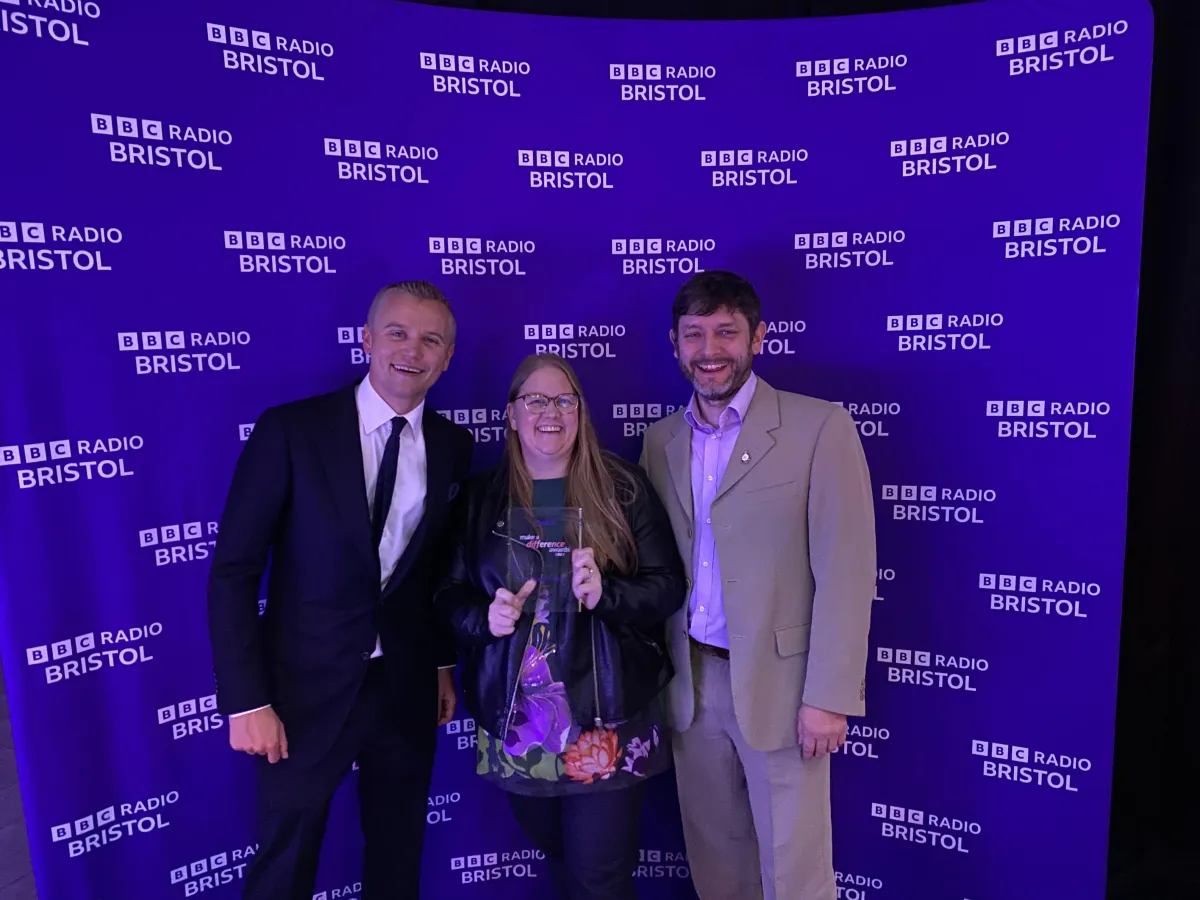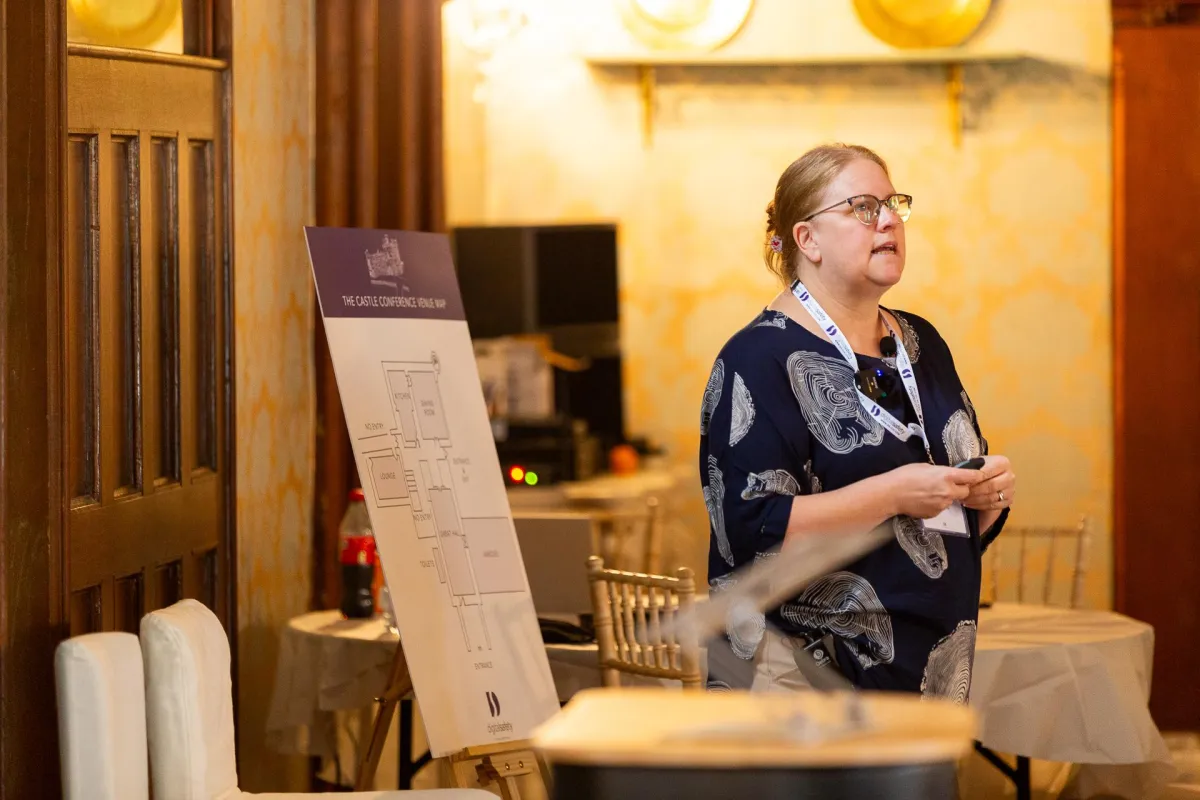
Lucy Smith
Neurodiversity & Inclusive Change Speaker, Facilitator, Compare
Lucy Smith, a keynote speaker on neurodiversity, resilience & inclusive change, helps organisations build inclusive, adaptive cultures that thrive on difference. Inspiring audiences & making a difference
Neurodiversity | Managing Change | Resilience
Life Stories | Social Enterprise
Authentic storytelling that makes a difference
Hi, I am Lucy!
Some people call me the "pocket rocket". I think that is because I have passion and energy to bring out the best in an audience.
I have been working with audiences for almost 25 years in many guises - Lecturer, radio presenter, drama teacher, children's entertainer (I have been a professional fairy) facilitator, compare and speaker.
As a speaker I believe there has to be some substance behind us and I sure have that too. Not being able to settle and always saying "YES" to opportunities has led to a whole lot of experience that informs my work and my presentations.
At my core I am a purpose led social entrepreneur who loves to start a conversation about topics that matter.
I start those conversations with stories some that will surprise and some that will inspire. I talk about some difficult stuff and combine my unique expertise and knowledge.
Relatable, authentic and thought provoking
Lucy x

Neurodiversity
What is your perspective?
I come from a range of different perspectives when I talk about neurodiversity. From pedagogy, organisation development and leadership, research, personal and family and real lived experience. With a a strengths based approach I talk positively and with passion about change and neurodiversity in work, school and community.
I engage audiences to get them thinking and start conversations that will make and does make a lasting difference.
Change Management
Let me meet you at your
bus-stop
In the world of change management, it's not about imposing a new route; it's about understanding where you're starting from.
I have spent a decade working with senior leaders in transformational change where I have learned that change is often an individual journey and we will all join that journey from a different bus-stop.
I combine theory with reality and always have an eye on the future.
Life Stories
The secret change agent
A wealth of stories based on real lived experience with plenty of lessons for the future. Spilling some my secrets on here would be giving away some of my best work which you will want to hear straight from the source.
Oh, okay, let's just say I can talk about resilience, royalty, and some really fun stuff from a career in international law enforcement.
Social Enterprise
Making a difference - the torch that lights the stars
Lighting people up to make sustainable change happen is a big part of what I do. From setting up a community radio station to developing an innovative and groundbreaking conference around digital wellbeing and young people.
I talk the talk and walk the walk when it comes to social enterprise, from grass roots to engagement at the highest levels right up to Downing Street.
Neurodiversity in the workplace
Delivering practical workshops, interactive webinars and tailored team development sessions.
Lucy explores how embracing neurodiversity drives creativity, collaboration and wellbeing at work.
-Understanding the strengths and challenges of neurodivergent colleagues
-Practical adjustments and inclusive communication strategies for teams
-Building a culture where neurodivergent talent can thrive and contribute fully
What do other people say?
Don't take it from me, here is what others say about working with me.
Listen online
Podcasts, interviews and YouTube
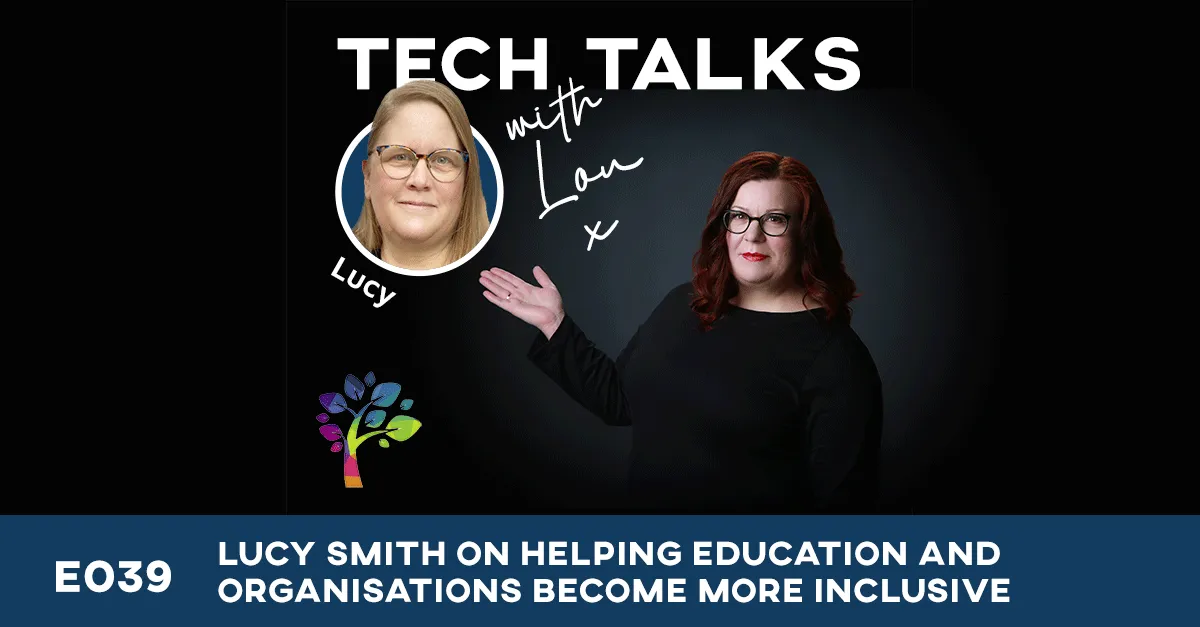
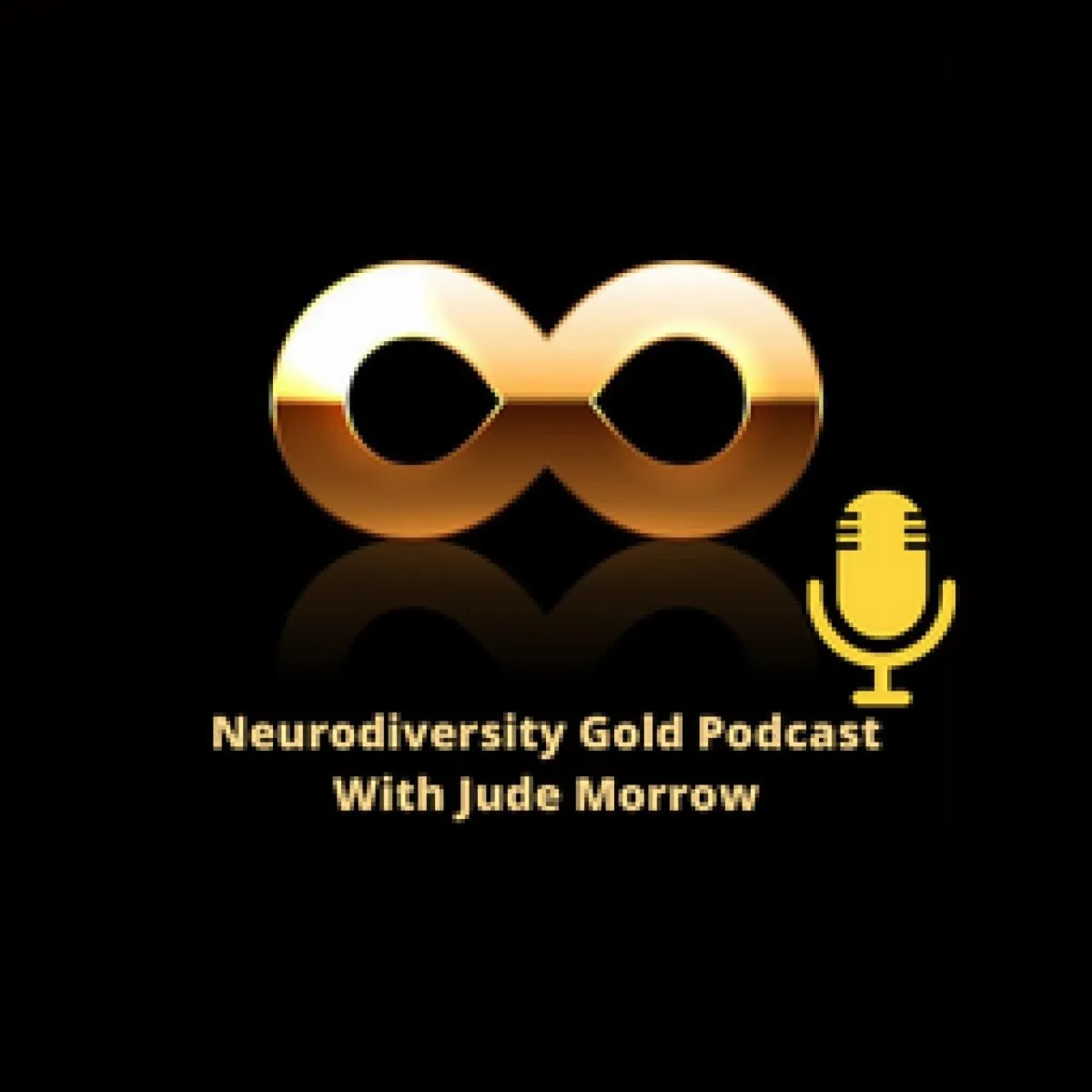
Read more
The blog

Breaking Down the Myths About Neurodiversity in Fitness
Why Addressing Myths About Neurodiversity Matters
The fitness industry is evolving. More trainers and gym owners are recognising the importance of creating inclusive spaces, but outdated myths about neurodiversity can still hold us back. These misconceptions don’t just harm neurodivergent clients—they limit your ability to grow your business and create lasting impact.
Let’s debunk some common myths and explore how embracing neurodiversity can transform your approach to fitness.
What Is Neurodiversity?
Neurodiversity acknowledges that conditions like autism, ADHD, dyslexia, and Tourette syndrome are natural variations in the way people think and process information. These differences are not deficits—they’re simply part of human diversity.
When we embrace neurodiversity in fitness, we shift the focus from “fixing” clients to supporting their strengths, adapting to their needs, and celebrating their unique potential.
Myth 1: “Neurodivergent Clients Can’t Handle Exercise”
The Truth: Everyone Can Benefit from Fitness
Some people believe that neurodivergent individuals aren’t interested in fitness or that their differences make exercise too difficult. The truth is, fitness is for everyone—it’s just a matter of adapting your approach.
For example, a client with autism may thrive in a predictable routine with sensory-friendly adjustments, while a client with ADHD may excel in dynamic, high-energy workouts. It’s about finding what works for them.
Here is a tip: Start by asking your client what they enjoy or what they’ve struggled with in the past. Use this as a foundation to build a plan tailored to their needs.
Myth 2: “Adapting Workouts Is Too Difficult or Time-Consuming”
The Truth: Small Changes Create Big Impacts
Many fitness professionals worry that adapting workouts for neurodivergent clients will be complicated or require significant extra effort. In reality, small adjustments—like breaking exercises into steps or using visual aids—can make a world of difference.
For example:
• A client with dyspraxia may benefit from using stability aids during balance exercises.
• A client with dyslexia might prefer visual demonstrations over written instructions.
Actionable Tip: Incorporate flexible options into your regular practice so they’re ready when you need them.
Myth 3: “Fitness Spaces Are Already Inclusive”
The Truth: Inclusivity Requires Intentional Effort
While many gyms pride themselves on being welcoming, traditional fitness spaces can unintentionally exclude neurodivergent clients. Bright lights, loud music, and crowded areas can be overwhelming for some individuals, creating barriers to participation.
Try this tip: Assess your environment. Consider offering quieter times, sensory-friendly zones, or the option for clients to use noise-cancelling headphones.
Why Busting Myths Is Good for Your Business
By breaking down these misconceptions, you position yourself as an inclusive, forward-thinking fitness professional. Here’s how embracing neurodiversity benefits your business:
1. Attract New Clients: Families, friends, and communities of neurodivergent individuals will notice your efforts and spread the word.
2. Build Loyalty: Neurodivergent clients who feel supported are more likely to return and recommend your services.
3. Gain a Competitive Edge: Few fitness professionals focus on neurodiversity. By doing so, you stand out in a crowded market.
Take the Next Step
Breaking down myths about neurodiversity is just the beginning. By learning how to support neurodivergent clients effectively, you can create lasting change for your clients and your business.
Ready to make a difference? Sign up today and join the Inclusive Fitness Team with George & Lucy 👉 https://inclusivechange.co.uk/inclusive-fitness-page
Some of the Companies Inclusive Change Have Worked With


Inclusive Change Ltd
The Brightwell, Bradbury House
Wheatfield Drive
Bradley Stoke, Bristol
BS329DB
Reg no: 12412464
Copyright 2023 - Inclusive Change Ltd
VAT NO: 352 1564 17
ICO Reg: ZB081779
UK Register of Learning Providers: 10090652
Column Header
Lorem ipsum dolor sit amet consecetuer lorem ipsum
Organically grow the holistic world view of disruptive innovation
At the end of the day, going forward, a new normal that has evolved
Column Header
Lorem ipsum dolor sit amet consecetuer lorem ipsum
Organically grow the holistic world view of disruptive innovation
At the end of the day, going forward, a new normal that has evolved
Column Header
Lorem ipsum dolor sit amet consecetuer lorem ipsum
Organically grow the holistic world view of disruptive innovation
At the end of the day, going forward, a new normal that has evolved






